Ingeborg Hermine "Inge" Morath was an Austrian photographer. In 1953, she joined the Magnum Photos Agency, founded by top photographers in Paris, and became a full photographer with the agency in 1955. Morath was the third wife of Pulitzer Prize-winning playwright Arthur Miller; their daughter is screenwriter/director Rebecca Miller.
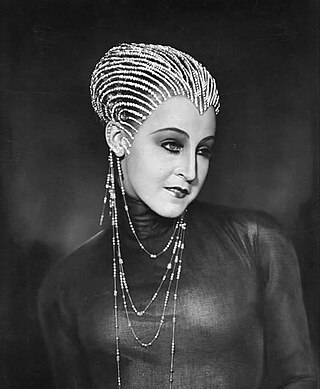
Brigitte Helm was a German actress, best remembered for her dual role as Maria and her double named Futura, in Fritz Lang's 1927 silent film, Metropolis.

Francis Lederer was an Austro-Hungarian Empire-born American film and stage actor with a successful career, first in Europe, then in the United States. His original name was František (Franz) Lederer.
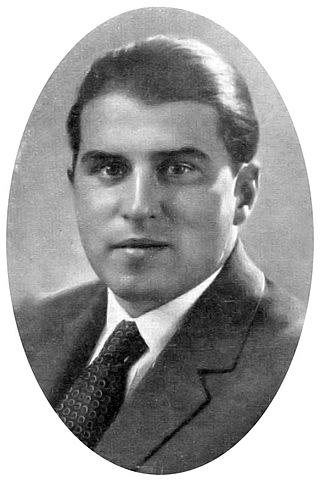
Carl Zuckmayer was a German writer and playwright. His older brother was the pedagogue, composer, conductor, and pianist Eduard Zuckmayer.

Joe May was an Austrian film director and film producer and one of the pioneers of German cinema.
Lederer is a surname of German origin, meaning "leatherworker". Notable people with the surname include:

Miles Mander, was an English character actor of the early Hollywood cinema, also a film director and producer, and a playwright and novelist. He was sometimes credited as Luther Miles.
Wunschkonzert is a 1940 German drama propaganda film by Eduard von Borsody. After Die große Liebe, it was the most popular film of wartime Germany, reaching the second highest gross.

Otto Max August Weidt was the owner of a workshop in Berlin for the blind and deaf. During the Holocaust, he fought to protect his Jewish workers against deportation and he has been recognised for his work as one of the Righteous Men of the World's Nations. The Museum of Otto Weidt's Workshop for the Blind remains on the original site of the factory and is dedicated to his life.

The Curtain Falls is a 1939 German crime film directed by Georg Jacoby and starring Anneliese Uhlig, Elfie Mayerhofer and Hilde Sessak. It was based on a play by Paul van der Hurck and was made by UFA at the company's Babelsberg Studios in Berlin. The film's sets were designed by the art director Erich Kettelhut.
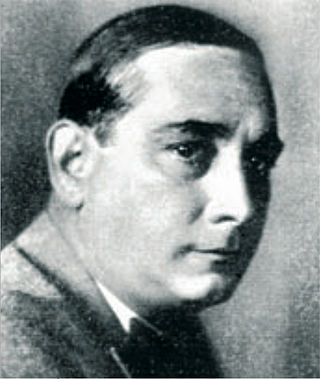
Robert Land (1887–1940) was an Austrian-Jewish film director of Moravian descent.
Robert Garrison was a German-Jewish film actor.

Inge Landgut was a German child actress. She is probably best-remembered for playing Pony Hütchen in Emil and the Detectives and as the child murder victim Elsie Beckmann in Fritz Lang's classic M, both films were released in 1931. Landgut continued her acting career into adulthood, making both film and television appearances.
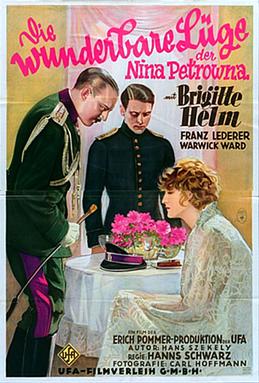
The Wonderful Lies of Nina Petrovna is a 1929 German sound drama film directed by Hanns Schwarz and starring Brigitte Helm, Francis Lederer and Warwick Ward. While there is no audible dialogue in the film, the soundtrack features a synchronized musical score with sound effects along with a theme song. It was the last big-budget film without dialogue released by the leading German studio Universum Film AG before the transition to sound began with Melody of the Heart. The film premiered on 15 April 1929 at the Ufa-Palast am Zoo in Berlin. It was amongst the most popular films released in Germany that year. A sound version was prepared for English speaking audiences. While the sound version has no audible dialog, it features a synchronized musical score with sound effects along with a theme song.
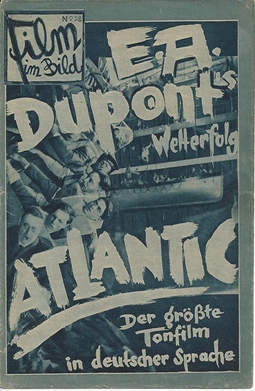
Atlantic is a 1929 British-made German language drama film directed by Ewald André Dupont and starring Fritz Kortner, Elsa Wagner and Heinrich Schroth. The film is a German language version of the 1929 film Atlantic made at Elstree Studios by British International Pictures. Following the introduction of sound films, leading film companies attempted to cater to different markets by producing multiple-language versions of their films. Atlantic was released in four versions: English, French, German and silent, for cinemas not yet converted to the new format. The German version was filmed at the same time as the British version, with each scene first being filmed in English for the British version, then the same scene being filmed in German by a German cast, using the same sets. The film was the first fully talking film to be released in Germany, where it was a major hit. It is based on the 1929 play The Berg by Ernest Raymond which itself was based on the Titanic disaster.
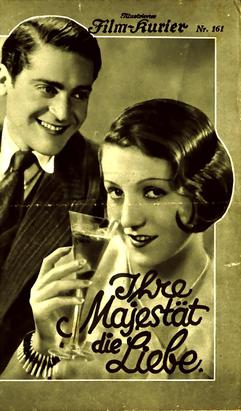
Her Majesty the Barmaid or Her Majesty Love is a 1931 German comedy film directed by Joe May and starring Käthe von Nagy, Francis Lederer and Otto Wallburg. It was shot at the Joinville Studios of Pathé in Paris. It premiered on 9 January 1931. A separate French-language version His Highness Love was produced at the same time. An American remake Her Majesty, Love was also released the same year by Hollywood studio Warner Brothers.

Stolen Identity is a 1953 Austrian film directed by Gunther von Fritsch and starring Donald Buka, Joan Camden and Francis Lederer.
On the Reeperbahn at Half Past Midnight is a 1929 German silent adventure film directed by Fred Stranz and starring Eddie Polo, Lydia Potechina, and Harry Nestor. The film takes its name from the 1912 song of the same name, which refers to the Reeperbahn in Hamburg. It was shot at the Johannisthal Studios in Berlin. The film's sets were designed by the art director Otto Moldenhauer. It was made by the German subsidiary of the Hollywood studio Universal Pictures.
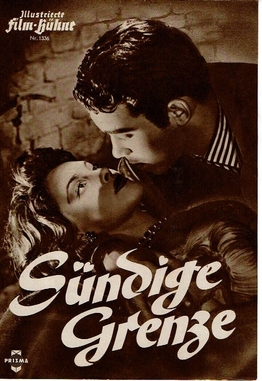
The Sinful Border is a 1951 West German crime film directed by Robert A. Stemmle and starring Dieter Borsche, Inge Egger and Peter Mosbacher. Jan Hendriks won the German Film Award as Best Newcomer. It focuses on the smuggling of coffee, at the time an expensive luxury, into Germany. It is also known by the alternative title of Illegal Border.

The Tour Guide of Lisbon is a 1956 West German musical comedy film directed by Hans Deppe and starring Vico Torriani, Inge Egger, and Gunnar Möller.















